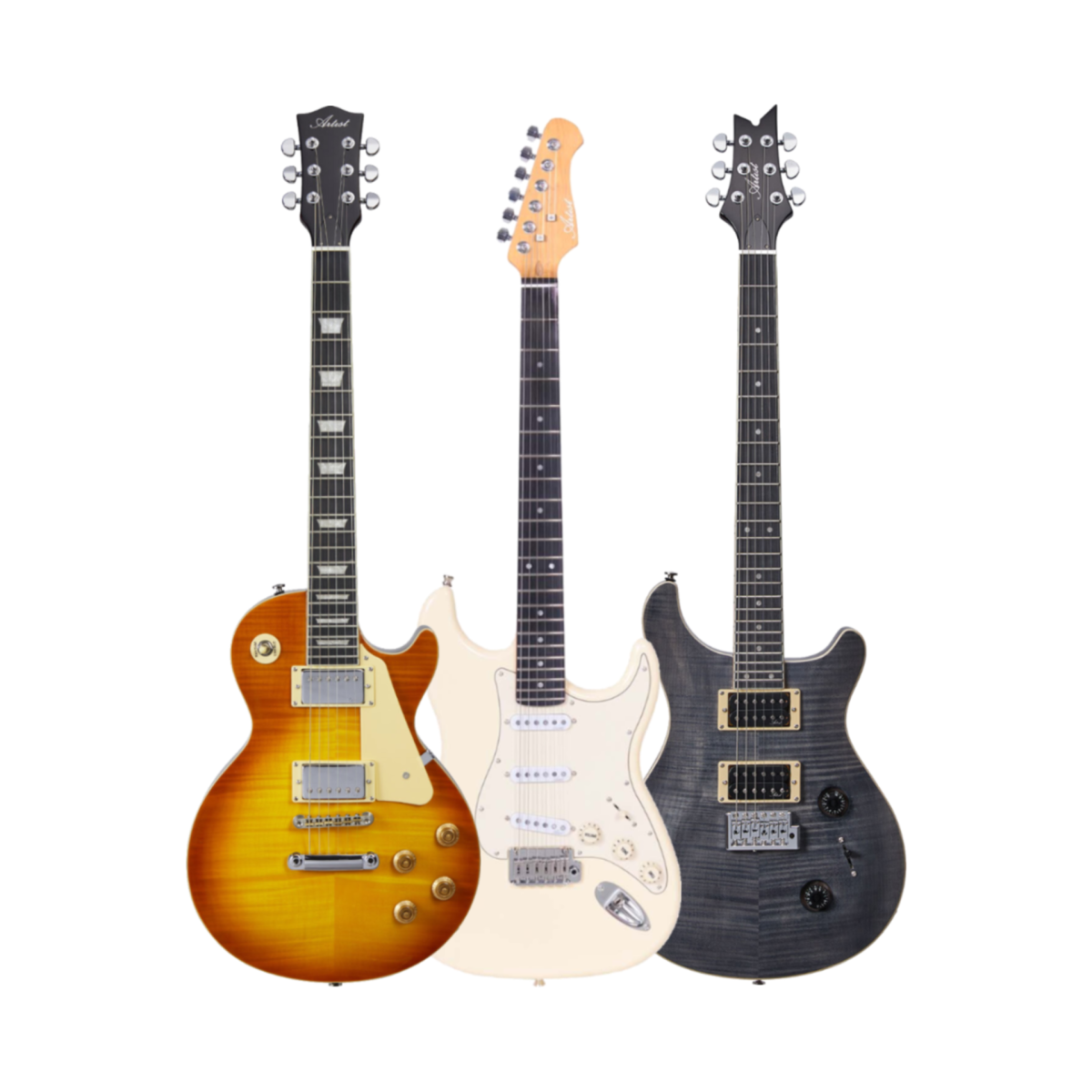In 2017, the Convention on International Trade in Endangered Species (CITES), which consists of delegates from 183 countries, implemented strict rules governing the import and export of Rosewood species, effectively banning the use of Rosewood as a guitar tonewood. CITES had to react to the overexploitation of Rosewood, especially in furniture exports, which poses a threat to the survival of many Rosewood species.
Though these restrictions have now been lifted in most countries thanks to lobbying for a CITES-recommended exception for musical instrument manufacturers, the Australian Government has not followed this recommendation. This means Rosewood imports in Australia are still bound by harsher restrictions than in other countries to the present day.
What is Eco-Rosewood?
Eco-Rosewood is a fretboard material used on several guitars throughout our range. A composite wood made from a selection of wood species, Eco-Rosewood produces very similar tonal and structural properties to Rosewood, while being much more sustainable in the long run.
I bought a guitar with Eco-Rosewood from you ages ago, and I didn’t like it - what gives?
When we first began using Eco-Rosewood several years ago, factories throughout the guitar industry were dealing with the sudden restrictions on Rosewood imports - what was once a standard material had suddenly become economically and logistically challenging to use on budget-friendly guitars…
At this time, with production processes for Eco-Rosewood in their infancy, early iterations were somewhat hit-and-miss. Though sporadic, some instruments came with dry, cracked-feeling fingerboards that didn’t measure up when compared with their Rosewood counterparts.
Has anything changed between then and now?
As we have continued using Eco-Rosewood alongside Rosewood fingerboards across our range, we have refined and tested the material to ensure that these early wrinkles were ironed out completely. Every step, from its composition to the finishing process, has been optimised to ensure these fingerboards perform incredibly well.
Through direct, side-by-side comparisons with Rosewood fingerboards, we have found that our current production and finishing process yields an Eco-Rosewood fingerboard that is much more durable than Rosewood!
Eco-Rosewood is a harder material that flexes and responds less to changes in temperature and humidity than genuine Rosewood. This means our Eco-Rosewood blend is much less likely to leave you with issues like fret-sprout and fretboard warping.
How does this affect performance and sound?
Fretboards should always be constructed from the hardest woods possible. As Eco-Rosewood is a composite wood, there is minimal variance in hardness across the whole fretboard when compared to woods like Maple or Rosewood, which can fluctuate considerably in grain density across even a single fretboard!
Ebony fretboards have always been considered the gold standard for these reasons, yet Eco-Rosewood outperforms even Ebony in these areas.
On electric guitars, the fretboard arguably does not make a tonal difference, though this has been the subject of much debate and internet discourse… and that’s putting it lightly!
On acoustic guitars (and electric, depending on who you ask), Eco-Rosewood sounds basically identical to Ebony - a bright, crisp high-end response with wonderful note articulation and quick attack
So, how can I maintain my Eco-Rosewood fretboard?
While regular Rosewood fretboards respond best to lemon oil for cleaning and moisturising, Eco-Rosewood is a little different! Pop the lemon oil back in your drawer, and pick up a bottle of olive oil! Due to the density of the wood, heavier-duty oils like olive oil are the best option for maintaining your Eco-Rosewood fretboard. When you change your strings, grab some from the pantry and rub it in - just like you would with lemon oil! Make sure to leave it to soak in, and don’t lather it on as if it’s pasta!
Simply follow the process you normally would with lemon oil, but using olive oil!
But a forum I read told me to never use olive oil!
They’re talking about Rosewood, not Eco-Rosewood. We’ve tested this material over and over, and olive oil is 100% the best option. You won’t cause any damage - in fact, your Eco-Rosewood fingerboard will thank you.
We use olive oil as part of the conditioning and finishing process from the factory, so if you notice your fretboard is getting a little dry and dirty, olive oil is the surefire fix!
What if I want a guitar without an Eco-Rosewood fretboard? I prefer a different look…
No worries! Even though Eco-Rosewood is the highest performing material, we’re guitarists too! We understand that in some instances, depending on who you ask, doing things the old way can still be the best way… no matter how much better a new development may be!
We have a massive range of guitars that use all different kinds of fretboard materials. Our range includes models equipped with: Genuine Rosewood, Ebony, Bolivian Rosewood/Pau Ferro, Maple, Roasted Maple, and more! Check the ‘Tech Features’ section at the bottom of each listing for more information on fretboard woods, as well as any other specification you’re curious about.